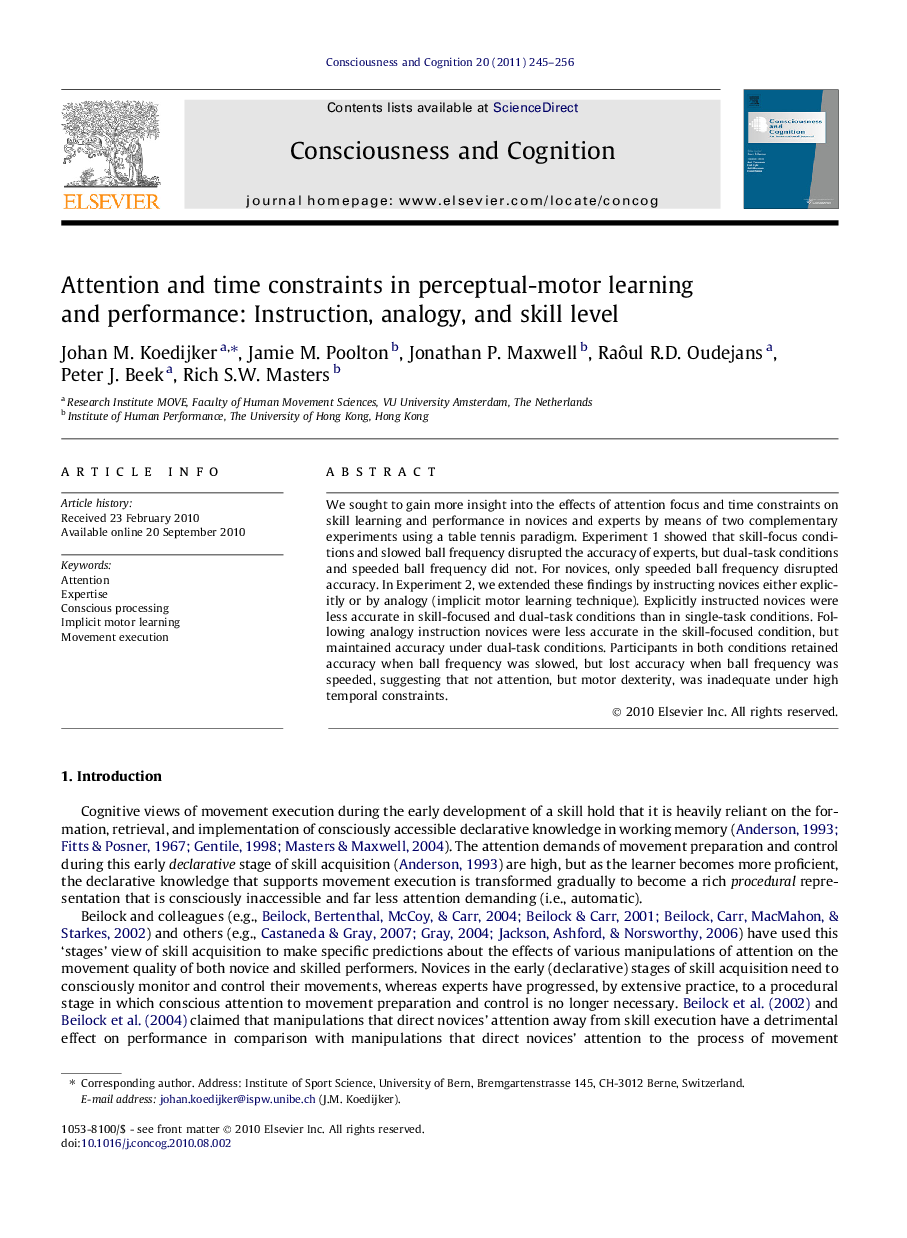| Article ID | Journal | Published Year | Pages | File Type |
|---|---|---|---|---|
| 927699 | Consciousness and Cognition | 2011 | 12 Pages |
We sought to gain more insight into the effects of attention focus and time constraints on skill learning and performance in novices and experts by means of two complementary experiments using a table tennis paradigm. Experiment 1 showed that skill-focus conditions and slowed ball frequency disrupted the accuracy of experts, but dual-task conditions and speeded ball frequency did not. For novices, only speeded ball frequency disrupted accuracy. In Experiment 2, we extended these findings by instructing novices either explicitly or by analogy (implicit motor learning technique). Explicitly instructed novices were less accurate in skill-focused and dual-task conditions than in single-task conditions. Following analogy instruction novices were less accurate in the skill-focused condition, but maintained accuracy under dual-task conditions. Participants in both conditions retained accuracy when ball frequency was slowed, but lost accuracy when ball frequency was speeded, suggesting that not attention, but motor dexterity, was inadequate under high temporal constraints.
